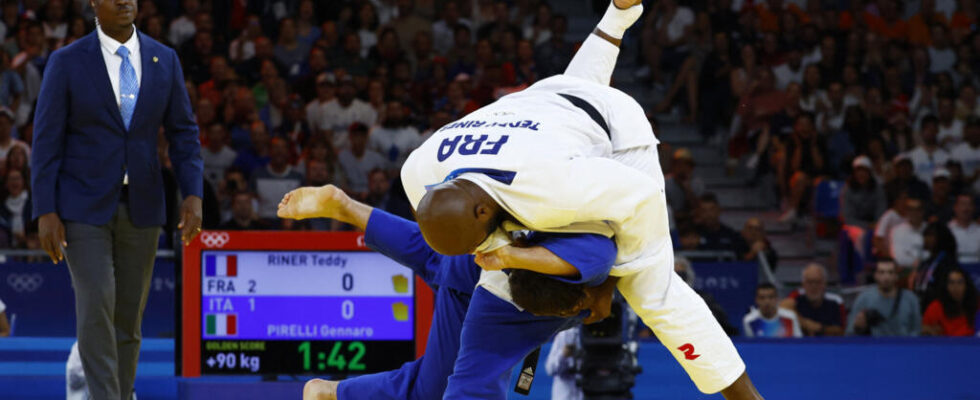Jean-Claude Djimbi, international judo referee, had the “pleasure” of refereeing judo stars during the first Olympic week. He talks about his impressions on the tatamis and also discusses the state of judo in Africa.
4 mins
From our special correspondent at the Arena Champs-de-Mars,
RFI: Paris 2024 is your second Olympic Games after Tokyo. Would you say that you have gained experience, experience, between the two Games?
Jean-Claude Djimbi: Obviously, there are still three years that have passed between Tokyo and Paris. Imagine that I referee about 12 international competitions minimum per year, for three years. That gives a volume of competitions and experience in addition. Alongside these competitions, there are always seminars, reinforcements on the different points, on clarifications at the level of the regulations. This means that referees like me who are in the World Tour, inevitably, we acquire even more experience.
You refereed this Saturday the fight between the French Teddy Riner and the Italian Gennaro Pirelli. Is it special to referee a legend like Riner?
The little story, in Tokyo, I had refereed the France-Israel semi-final fight, and I had Teddy Riner on my mat. There, bis-repetitaI still have France and Teddy Riner again. It must be said that when the refereeing commission allows you to do this kind of fight, it considers that you have the level, you deserve to be the mat in the middle of this kind of legend. And for me, as a referee, it is a pleasure, it is a satisfaction. The Olympic Games are every four years, it is the Grail, it is the pinnacle. And coming here, to France, to referee today the triple Olympic medalist, it is for me a great pleasure and an honor that the International Judo Federation gives me.
Can you really enjoy knowing that you have to be focused, impartial, but at the same time, there is this passion when you referee legends like Teddy Riner?
We have the pleasure because the distributions, the distributions of the fights are done about 15 minutes before the fight. So when it happens, it is a pleasure and at the same time also a little stress. Because you are facing athletes who have prepared for years for this day. You would have to be at the top to be impartial and give the best value to allow the best to win the fight. And it is only after the fight that we quickly do an analysis and we say to ourselves: “Hey, I refereed, I did well, I am totally satisfied, plus there is a legend on the mat”. Yes, we are very happy to referee this kind of fight.
Is there a particular fight this week that you refereed that left a particular mark on you?
I really enjoyed my fifth day because I had in the preliminary the future Olympic champion (Georgian Lasha Bekauri), and in the semi-final, the future Olympic champion (Croatian Barbara Matic). In one day, you have the two winners on your mat. It’s just fun.
What is your view today on Gabonese judo, and by extension on African judo, when we see that during this week, the Africans were unable to respond?
I think that at some point, our federal officials, our leaders, should sit down and do a “backpedal”. It’s a shame that many countries invest a lot of money in one or two athletes that they send abroad to be able to train. No one is going to train us as well as we do. Let’s set up the structures at home. I’m not saying: “let’s train our coaches” because they are already trained. But let’s give our coaches the means so that they can train and improve the quality of training for athletes. We have the men. On the other hand, it’s the confidence of politicians that is lacking. Politicians must trust Africans and African leaders must take their time, take it upon themselves to keep their athletes on their soil and set the same conditions as elsewhere. Once again, we must change our policies, our training, even our vision to be able to obtain medals like the others.
You saw African athletes pass by during this week. Is there one in particular that left a mark on you?
Yes, there are several, there is not just one. I saw the African champion, Amina Belkadi, the Algerian, who had a good run. I saw the Egyptians who had a good run. I saw the Senegalese Mbagnick Ndiaye who did not disgrace himself. So, I think that if we keep all these athletes here, once again, if we put in the resources, there is no reason why in eight years, they will not win medals.
Read alsoFollow the 2024 Olympic Games on RFI
